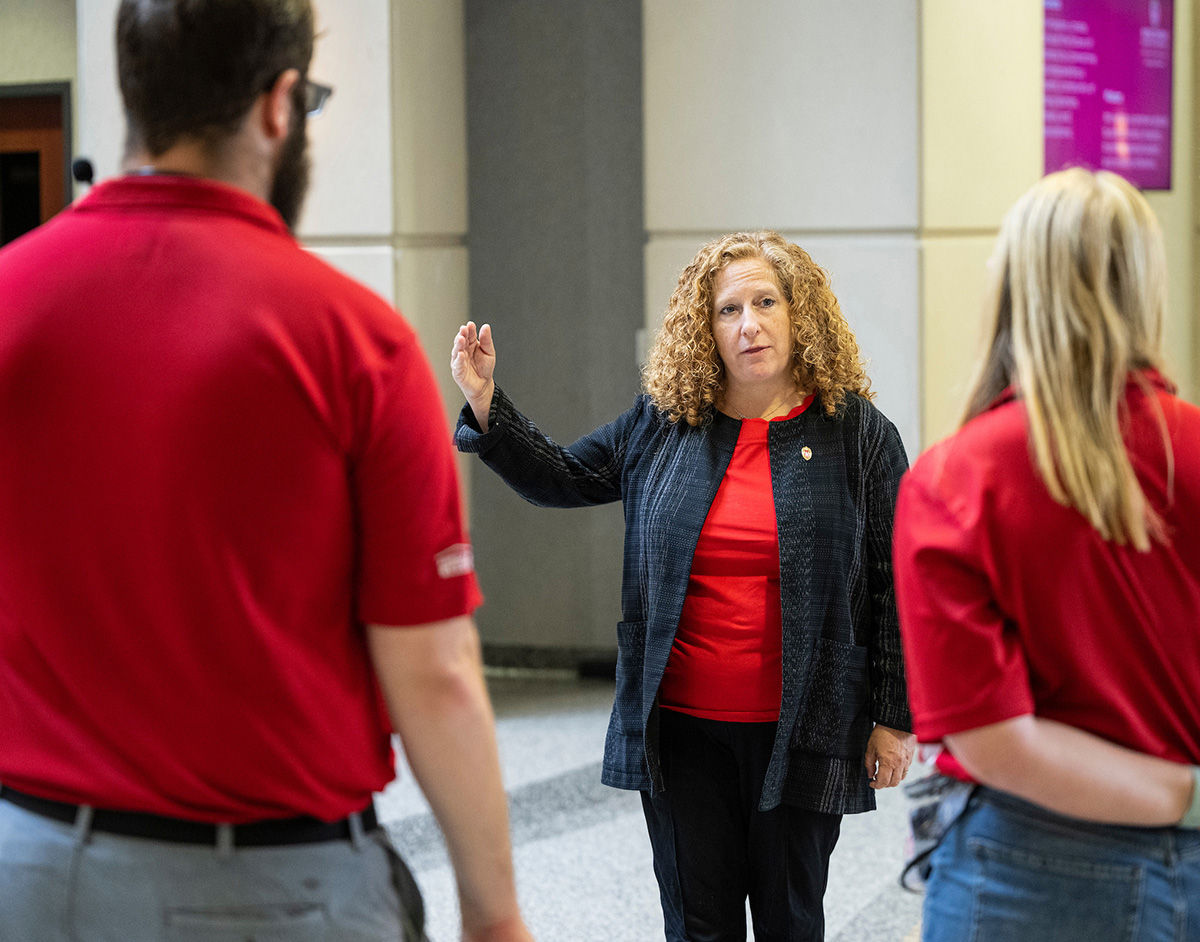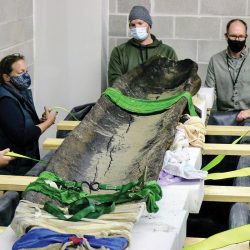Navigating Free Speech in Stormy Times
Chancellor Mnookin calls for respect for those with differing opinions.

Mnookin: “Events overseas should not compromise our commitment to compassion and empathy toward one another.” Bryce Richter
Campus events of recent years have highlighted tensions between the right of free speech and the desire to make all students — whatever their backgrounds and beliefs — feel welcomed and valued. Universities across the country are dealing with these issues. From racist incidents to scheduled talks by polarizing speakers to, most recently, demonstrations in response to the Israeli-Palestinian conflict, there have been calls to silence those whose opinions evoke pain, fear, and anger in others.
In a November statement titled “Choosing Humility, Not Hate,” Chancellor Jennifer Mnookin expanded on the need to balance the university’s legal obligations with the goal of creating a community where all students can have a sense of belonging.
Mnookin amplified a call from the UW–Madison Center for Interfaith Dialogue to “speak freely, but with humility” and to “act strongly, but do not harm.”
“Let me be clear,” she said. “No one should ever be attacked or disparaged based on their religion, identity, or place of origin.” But she reminded the campus community that, as a public university, UW–Madison is required by law to allow freedom of speech, even when that speech causes pain. And as she mentioned during her investiture, the university needs to remain open to the free discussion of ideas and “resolutely committed to that ‘continual and fearless sifting and winnowing by which alone the truth can be found.’ ”
During conversations this past fall with students who were affected by the Middle Eastern crisis, Mnookin said, she heard a consistent theme: “Please recognize our fundamental humanity. … Even if you disagree with us about the politics of the Middle East, do not treat us as less than human.” She added that “to a quite astonishing degree, [the students] had a genuine sense of empathy for what their classmates who had different religions and different politics were going through now.”
The chancellor ended her statement with a sentiment expressed by one of those students: “Events overseas should not compromise our commitment to compassion and empathy toward one another. Let’s strive to be a university that reshapes the narrative on this topic and promotes a message of hope, unity, and love.”
Promoting hope, unity, and love: when applied to the multiple fraught issues of our times, that is one Wisconsin Idea that could benefit the entire world.
Published in the Spring 2024 issue



Comments
No comments posted yet.